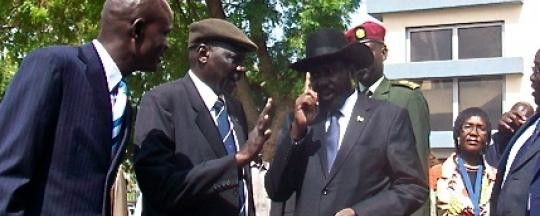South Sudan’s President Salva Kiir and his Minister of Information Michael Makuei have reversed their earlier position that the Establishment Order will not go to parliament for approval, announcing instead yesterday after a cabinet meeting that it must be deliberated in parliament before it takes effect.
Kiir or his advisors had written the order in such a way that it took effect within 30 days without parliamentary approval. Moreover, Article 2 of the Establishment Order lays claims to presidential powers for Kiir to create new states simply by decree.
The president’s close advisor and information minister, Michael Makuei, stressed on state-run television shortly after the issuance of the order on 2 October, “This is an order… if it were to go to the parliament the provision would have been done differently.”
“This is an administrative order issued by the president, and an administrative order is not subject to approval,” Makuei affirmed.
Subsequently, however, at least two state governors and the president’s own legal advisor have hinted that the Establishment Order must go to parliament for approval because it requires constitutional changes that only the parliament has powers to enact.
This suggests that Kiir’s own legal advisor was not involved in drafting the Establishment Order, otherwise it might have been drafted as a constitutional ‘proposal’ rather than an ‘order.’
Yesterday, the Council of Ministers chaired by Kiir adopted the order and decided to sent it to parliament for deliberation.
Speaking on Tuesday after the meeting at the Ministry of Cabinet Affairs, Makuei told journalists, “The council of ministers in its extraordinary meeting number 4 of this year sat this morning on the urgent issues to do with the Establishment Order which was issued by the president,” he said.
“The council has adopted the order and has agreed to send it to the national parliament in order for it to pass in as short a period possible,” said Makuei.




